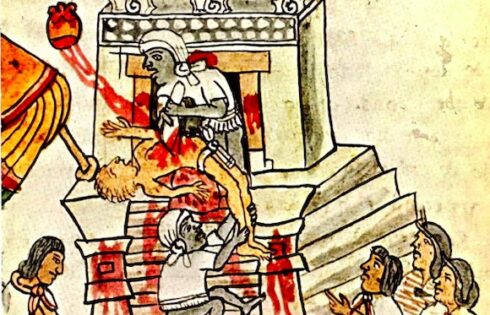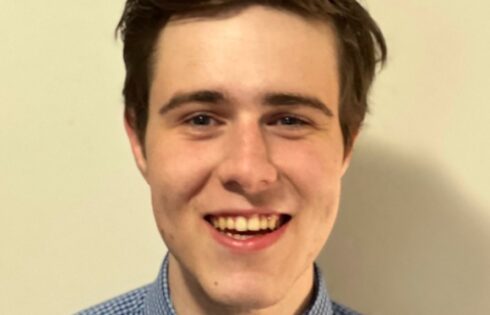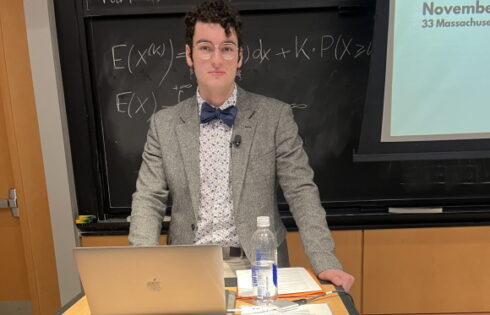
Forced apology shows ‘the college’s foremost interest is its public perception’
As far as meaningful apologies go, this is one of the best ones I’ve seen from a college.
Arizona’s Maricopa County Community College District not only apologized for trampling on the academic freedom of a Scottsdale Community College professor, but promised an “immediate independent investigation” into its handling of the situation.
It’s also creating a “Committee on Academic Freedom” to ensure that the district’s “longstanding commitment to the value of inclusion” does not come at the expense of academic freedom.
The Monday announcement from interim Chancellor Steven Gonzales came four days after the Foundation for Individual Rights in Education warned SCC that its actions were “flatly inconsistent” with its First Amendment obligations and would chill faculty expression.
Nicholas Damask, chair of the political science department, teaches a world politics class that includes a module called “Islamic Terrorism.” Three quiz questions in the module asked whom terrorists “strive to emulate,” which Islamic verses encourage terrorism, and when terrorism is justified in Islam, according to FIRE’s letter.
A student complained to Damask that the questions were “in distaste of Islam” and didn’t accept his explanation of the legitimacy of the quiz questions. Soon the same complaint had been shared online and SCC’s Instagram account started getting bombarded with complaints about the quiz.
In an Instagram post that has since been removed but remains archived, interim SCC President Chris Haines not only agreed that the quiz questions were “inaccurate, inappropriate, and not reflective of the inclusive nature of our college,” but said Damask “will be apologizing” to the offended student.
The college was also “permanently” banning those questions from future quizzes. Haines implied they violated the college’s nondiscrimination policy.
“We applaud the student for bringing this to our attention – and encourage any student or employee to speak out” when offended by quiz questions, Haines said. (Side note: Please use Archive.Today to document online posts you think may be removed. Haines’ post does not display on the most popular archive service despite being saved more than 200 times in a single day.)

MORE: UCLA censors book on ‘Islamic Totalitarianism’ at free speech event
Not only did Damask’s dean tell him the district’s governing board was reviewing the matter, and that “a leader in the Islamic faith” would now be screening his course content, but the college refused to tell a local newspaper if the professor was facing discipline. (Investigating protected speech by itself can violate the First Amendment, nevermind issuing sanctions at the end of the investigation.)
“Damask left these calls [with Dean of Instruction Kathleen Iudicello] feeling that his job security was in jeopardy,” FIRE program officer Katlyn Patton wrote to President Haines.
As for that apology that the president promised? Marketing and Public Relations Manager Eric Sells wrote it, sent it to multiple administrators and warned that “senior leadership” would probably want to review it. The draft apology pledged, in Damask’s name, to “ensure there’s no additional insensitivities” in course material. (Sells’ grammar is incorrect here.)
The college committed the trifecta of censorship with this course of action, violating not only the First Amendment and core tenets of academic freedom but also state law protecting faculty against compelled expression of “a particular view,” Patton wrote. She reminded Haines that the district already paid a six-figure settlement in the past year to resolve a First Amendment lawsuit brought by faculty.
(The settlement’s mandated training on freedom of expression and academic freedom apparently didn’t work, which is too bad, because those are explicit conditions of its accreditation.)
Patton warned the president that she doesn’t want to litigate this, because the 9th U.S. Circuit Court of Appeals (whose rulings are binding on SCC) has already exempted “academic freedom” from a precedent that lets employers regulate employee speech “pursuant to their official duties.” That 2014 ruling went even further than Damask’s quiz, protecting speech “related to scholarship or
teaching.”
SCC’s ludicrous overreaction to the quiz questions sets a dangerous precedent for Damask’s entire department, Patton wrote:
Further, the study of political science—and particularly world politics and terrorism—will almost inevitably venture into sometimes-uncomfortable territory and include topics on which many students will have both varying and deeply-held beliefs. That students may experience discomfort, and even anger, in the course of their studies should have no bearing on a professor’s right to select relevant materials and test students on their knowledge of those materials as they see fit. The students in Damask’s class are adults in a college-level course and should be treated as such.
MORE: Six-figure settlement with student punished for Islamic terrorist spoof
The forced apology is a “stark admission that the college’s foremost interest is its public perception, which it has shamefully elevated above the well-established expressive and academic freedom rights of its students and faculty,” Patton concluded. (FIRE’s blog post Monday gives no suggestion the college responded by its May 8 deadline.)
Monday’s announcement from Chancellor Gonzales left out names and other details of the dispute, but made clear that the quiz questions “were taken out of context” and their subject was “within the scope of the course.” Some people even “made threats” against the unnamed professor.
Gonzales said he was “troubled by what appears to be a rush to judgement in how the college responded to the controversy,” including by violating its own policy and procedure:
I apologize, personally, and on behalf of the Maricopa Community Colleges, for the uneven manner in which this was handled and for our lack of full consideration for our professor’s right of academic freedom.
Perhaps alluding to FIRE’s warning that an investigation itself can trigger legal liability, the chancellor cleared up “misinformation” that the district’s governing board was investigating the professor or might be planning to. Damask is “not in jeopardy of losing his position.”
As for the academic freedom committee, its members will be “identified by the end of the week,” he said. Their task is to “champion academic freedom education and training and to resolve academic freedom disputes in the hope of ensuring this fundamental academic value is better understood and realized alongside our longstanding commitment to the value of inclusion.”
If there’s one thing folks like FIRE can tell you, however, it’s that promises made in the midst of a PR disaster can go unfulfilled if the public loses interest. The first test of the district’s commitment will be whom it appoints to the new committee, and the second will be its transparency with the results of the independent investigation.
MORE: American university punishes prof for refusing to proselytize Islam
IMAGE: STUDIO GRAND OUEST/Shutterstock
Like The College Fix on Facebook / Follow us on Twitter







Please join the conversation about our stories on Facebook, Twitter, Instagram, Reddit, MeWe, Rumble, Gab, Minds and Gettr.